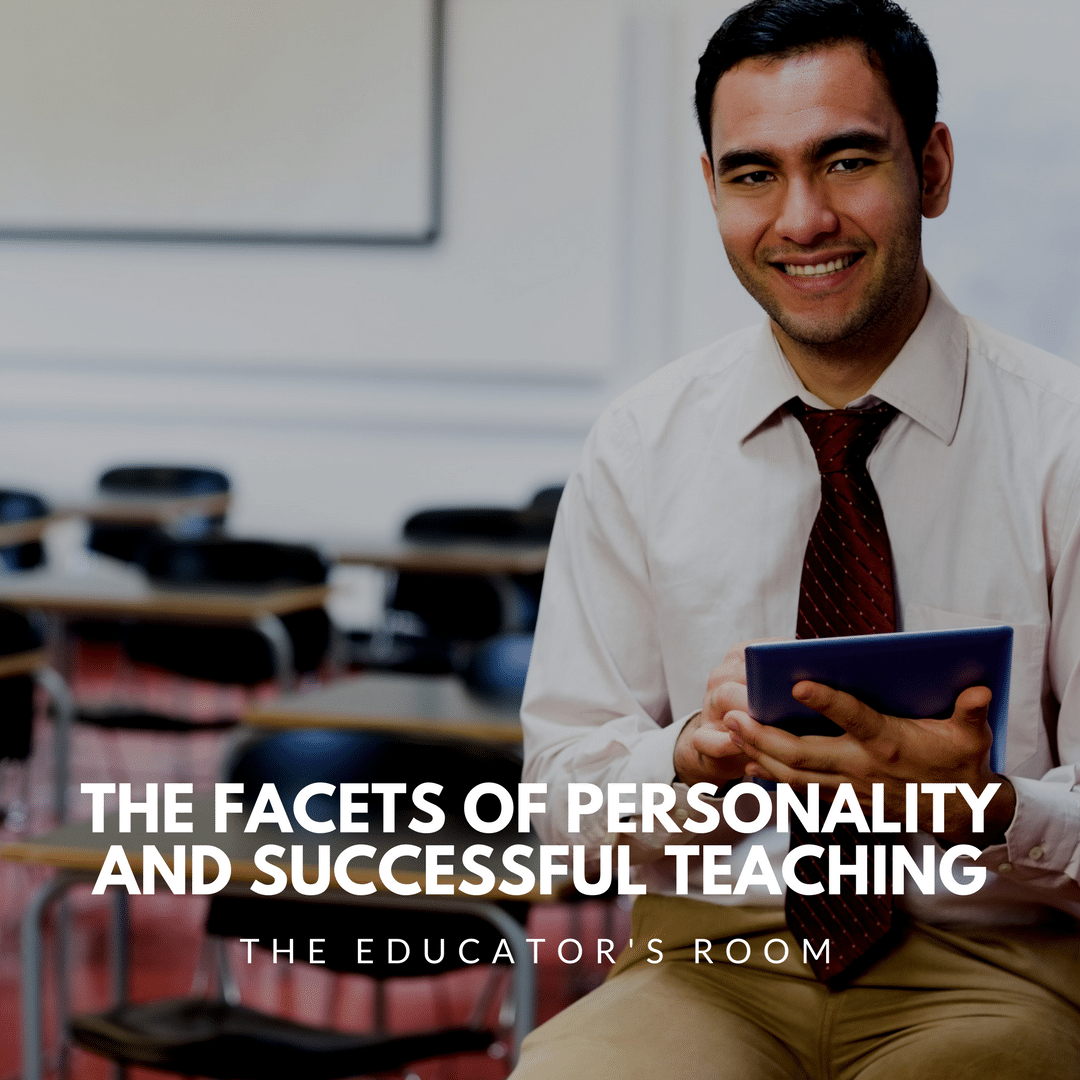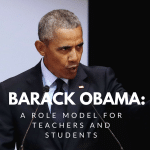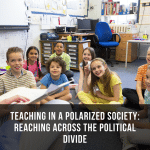Anyone who has ever been a cooperating teacher for an up-and-coming student teacher knows how difficult it can be to evaluate one’s protege negatively. As I observed my student teacher. I am inspired to evaluate my own teaching style and the elements of my personality that go into my efforts to be a master teacher. In one recent observation, I observed that the future teacher had a very introverted and shy person and that made it very difficult for middle school students to build a relationship and buy into the interactions that the future educator was trying to put forth in front of the classroom.
I was also prompted to wonder what it would be like to be a middle school teacher after having overcome one’s own learning challenges such as a reading disability, like dyslexia or challenges with memory and retaining information. I wondered how this constellation of personality traits would come together to produce a teacher that would be effective with secondary-level students.
My own implicit bias in favor of extroverts and against introverts came through as I began my research on this topic. I texted my daughter who is the closest introvert that I know and asked her if it were possible for introverts to be effective teachers. I was immediately corrected and told that many there are many introverts who are excellent teachers. She wrote to me emphatically:
Introversion/extroversion has to do with whether being around people energizes or drains you. There are quiet and shy extroverts who love being around people and outgoing introverts (me). I just get tired faster and need to be alone to recharge. I would actually say I’m closer to an ambivert, which is someone who can be both.
It became apparent to me that the general type of introvert and extrovert are both valid modalities for constructing a personality with which one could teach, and that one’s subject area and classroom activity can all be tempered into either personality type. Also, there are other facets of personality that impinge on how those two base structures lead to success as a classroom teacher.
Change over time
I approached my assistant principal who at one time was a fellow social studies teacher under my auspices as department chair. He agreed that being outgoing and interested in people were critical elements of successful teaching, especially in middle school where students are motivated based in large part on the relationship they have with their teacher. He helped me expand the breadth of our conversation to include aspects such as learning style, disabilities to overcome, and how those result in teaching style as a person matures becomes a professionally trained educator.We discussed other mental health components such as whether one is generally a positive or negative person and how one deals with syndromes such as obsessive-compulsive disorder, bipolar disorder, situational or chronic depression, or if the future teacher is somewhere on the autism spectrum. All of these aspects of personality come to play a role in whether or not a prospective teacher becomes a successful one.
[bctt tweet=”Extroverts can be overbearing, take unnecessary risks, or alienate people due to their strong personality. ” username=””]
My assistant principal also reminded me that extroverts may have their own challenges as teachers. They may need to modulate their personalities in order to apply filters and limits on the things they say and do. Extroverts can be overbearing, take unnecessary risks, or alienate people due to their strong personality. For some extroverts, the filter they must add when being verbal can be assisted through medication because they’re outgoing nature is actually a function of ADHD. Many older teachers who are outgoing and who sport powerful personalities may actually be presenting undiagnosed ADHD. I think of myself as I continue to struggle with the constant monologue that must take place in my head as I conduct a history or civics class so that the consequences of that which I verbally express are positive and stay within the bounds of professional conduct. We extroverts must stay consciously aware that both word and deed could bring about negative consequences, and these potential actions must be repressed and eliminated. To put it simply, I have to watch what I say because I am not on the meds that would otherwise help me do that.
The Struggle Is Real
In his blog “Thoughts of a Loud Guy,” writer Cloud Cray tackles this issue as he experiences being an extrovert with ADHD. He points out that the challenge of controlling behavior is very much a brain chemistry issue. He describes the struggle between knowing what he should do and what he wants to do. According to Cray, the first part of this brain sequence never fires. Only strong negative consequences force his brain into the “I should do this” section of the cognitive sequence. Try applying this mental control into presenting a lesson on the 1960s, the Executive Branch, or the Civil Rights. Add the fact that the teacher is interacting with twenty-five or thirty adolescent children experiencing the same mental sequence, and their experience is impacted by developmental and hormonal changes, one can see why teaching can feel like a constant tightrope balancing act for both extroverts and introverts.
[bctt tweet=”One can see why teaching can feel like a constant tightrope balancing act for both extroverts and introverts.” username=””]
For introverted teachers, the challenge is essentially processing mental sequences but in reverse. They must gather up their mental strength to overcome the personality brakes they have applied throughout their lives. Fear of failure, rejection, or saying the wrong thing may keep introverted teachers from communicating effectively or from being their own self-advocate when interacting with students or colleagues in a way that makes them become successful teachers. For teachers on both sides of the personality spectrum, the struggle also means striving to be one’s authentic self while staying within the bounds of professional performance.
Personality structure also assists with relationship building, a component that is critical both inside and outside of the classroom within the educational setting. Both extrovert and introverts must have a degree of empathy, altruism, and selflessness, characteristics needed to be perceived as an effective educator. Teachers who can sense the emotions of others, who can monitor their own reactions and calibrate them to the appropriate situation, and who can be more effective listeners show both students and colleagues that they understand and appreciate the other person’s point of view and in so doing appear valued and understood in return. The inverse is also true: teachers who do not appear truly interested in the welfare of others tend to alienate their students and colleagues as well as parents and administrators. A lack of empathy can lead to a toxic work environment as easily as bullying or harassment can in the workplace.
What is the best personality type for teachers?
For those familiar with the Myers-Briggs Personality instrument, it may be useful to find out which combination of Myers Briggs personality types they have, but it is apparent that no one combination of personality components comprise is the best personality for teaching. Every Myers Briggs personality combination has the ability to teach in a different way, leading to a variety of teaching styles, and each one has both strengths and challenges when interacting with students and dealing with classroom situations.
In my earlier years as an educator, I saw myself as an ENTJ (Extrovert, Intuitive, Thinking, Judging), but I took an abbreviated version of the Myers Briggs recently and found that I have morphed into an ENFP (Extrovert Intuitive, Feeling and Perceiving). This personality type is characterized by being interested in people and enjoy being around them, is able to relate to others, and understands what they’re thinking, but does not want to be controlled by others. He usually sees the big picture rather than short-term or limited goals. While I found this newly revised personality description as being accurate, I also had to do some introspection to find out why I had changed over 35 years of being an educator. The greatest difference was that learning to work with people had helped me become more empathic and understanding of other people’s feelings rather than judging them and acting accordingly.
One answer to the personality puzzle
Through cognitive therapy and the evaluation process that is in place within my school district, I have concluded that positive and rewarding relationships and experiences result from an effort to engage in what is known as mindfulness. In teaching and education, mindfulness can be identified as the awareness of one’s own actions their consequences without judgment. Physical reactions, emotional temperament, thoughtfulness in behavior, an effort to be sensitive and show empathy in human interaction, and implementing a systematic method for being effective both in the classroom, in meetings, and in casual interactions within the school setting — these are all elements of mindfulness. The process may not be possible at every moment, but mindfulness feels like a positive habit. Knowing that it is a useful tool leads a professional striving for excellent to increase effectiveness and professional performance. With those goals in mind, positive results are more likely in both personal and professional settings.







